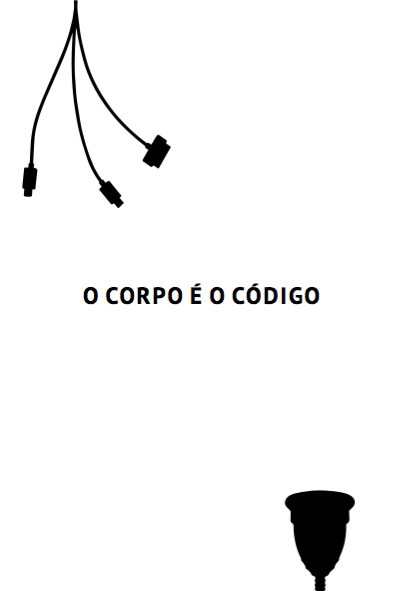
InternetLab releases the book “the Body is the Code”
Today we are launching the book “The Body is the Code: legal strategies to face revenge porn in Brazil”, in an exclusively digital format and free to download (licensed in Creative Commons).
Written by InternetLab researchers Mariana Valente, Natália Neris, Juliana Ruiz and Lucas Bulgarelli, the book is the result of over a year of work in their research line “Internet & Genre, Race and other social markers”, which is dedicated to the issues of differences and diversities in the use of the Internet and its policies. During 2015 and 2016, the team understood that it was urgent to focus on the question of online violence against women, which has been getting to worrying proportions in Brazil. “The violence against women and girls on the Internet, such as the dissemination of unconsented private imagens also has the aggravating factor of making the internet an hostile place for them, which can lead to their retreat and thus reinforce the gender inequality, given the importance of the Internet on today’s cultural and political life”, affirms Mariana Valente, director of InternetLab and doctoral student at the University of São Paulo (USP), who coordinated the research.
The researchers analysed all legal decisions on the subject of revenge porn at the Court of Justice of the State of São Paulo, supported their conclusions interviewing a series of actors of the justice system, and also did a case study on the practice of elaborating the so called “lista das mais vadias” (list of the slutiest) in schools of São Paulo (the “Top 10”). With that, they wrote about the alternatives that the law offers when something like that happens, refuting the common sense that there are no legal alternatives, but showing the problems that happen when the existing alternatives are applied on the Judiciary.
Some conclusions are:
– When victims are adult, they need to hire a lawyer and sue for slander and/or libel (by law, it is not the Public Prosecutor Office that sues for these crimes); “That ends up being a problem in face of our inequalities, considering that the victim who doesn’t have the resources will be in a disfavored position”, says Natália Neris, researcher for the InternetLab, master by FGV and coauthor of the book.
– The problem is much bigger than it looks like: many cases don’t involve the sending of images, but the threat of sending them, the extortion (the aggressor asks for money, for example, in order not to spread them), and even rape (the aggressor demands to have sexual relations in exchange to not send the material).
– the Child and Adolescent Statute should be more protective of teenagers, but ends up punishing less: “the crime that the Statute predicts is of ‘child pornography’, which is not applicable in many cases – half the ones we analysed”, states Juliana Ruiz, researcher for InternetLab and also a coauthor.
The book further addresses topics like the processes against Internet application providers, like Google and Facebook, for the removal of the unconsented nudity material and identification of the aggressors, and makes a critical revision of the bills going through the National Congress to try and solve the matter.
